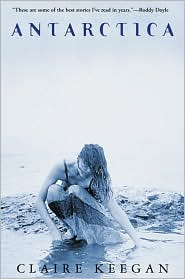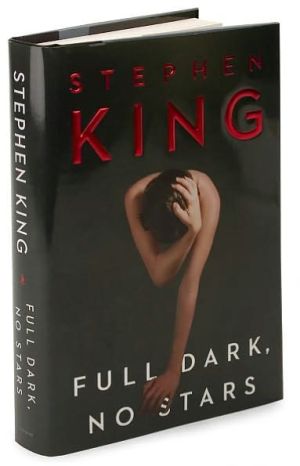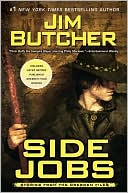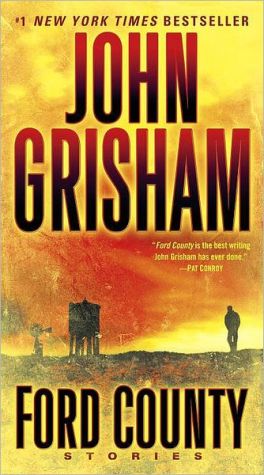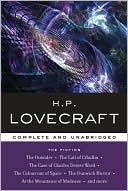Antarctica
Published to great critical acclaim on both sides of the Atlantic, the iridescent stories in Claire Keegan's debut collection, Antarctica, have been acclaimed by The Observer to be "among the finest contemporary stories written recently in English." In "Antarctica," a married woman travels out of town to see what it's like to sleep with a man other than her husband. "Love in the Tall Grass" takes Cordelia down a coastal road on the last day of the twentieth century to keep a date with her...
Search in google:
Published to great critical acclaim on both sides of the Atlantic, the iridescent stories in Claire Keegan's debut collection, Antarctica, have been acclaimed by The Observer to be "among the finest contemporary stories written recently in English." In "Antarctica," a married woman travels out of town to see what it's like to sleep with a man other than her husband. "Love in the Tall Grass" takes Cordelia down a coastal road on the last day of the twentieth century to keep a date with her lover that has been nine years in the waiting. "Stay Close to the Water's Edge" tells of a young Harvard student who is pitilessly humiliated by his homophobic stepfather on his birthday. Keegan's writing has a clear vision of unaffected truths and boldly explores a world where dreams, memory, and chance have crippling consequences for those involved. The stories are often dark and enveloped in a palpable atmosphere, and the reader feels that something "big" is going on in each of these carefully sculpted tales. The award-winning Antarctica, a Los Angeles Times Best Book of 2001, and recipient of the prestigious Rooney Prize for Irish Literature, the William Trevor Prize, and the Martin Healy Award, is a haunting debut. "These stories are diamonds." -- Emily Robichaud, Esquire "That Keegan has a knack for storytelling is proved many times over...." -- Caitlin Macy, The New York Times Book Review "[These] stories ... show Keegan to be an authentic talent with a gimlet eye and a distinctive voice." -- Amanda Heller, The Boston Globe "Reading these stories is like coming upon work of Ann Beattie or Raymond Carver at the start of their careers." -- Jerry Griswold, Los Angeles TimesLibrary JournalAn upcoming Irish writer whose r sum is already decorated with numerous awards, e.g., the William Trevor Prize, Keegan here offers a first collection of tough-minded stories. Copyright 2001 Cahners Business Information.
\ \ \ \ Chapter One\ \ \ Antarctica\ \ \ Every time the happily married woman went away, she wondered how it would feel to sleep with another man. That weekend she was determined to find out. It was December; she felt a curtain closing on another year. She wanted to do this before she got too old. She was sure she would be disappointed.\ On Friday evening, she took the train into the city, sat reading in a first-class carriage. The book didn't hold her interest; she could already predict the ending. Beyond the window lighted houses flashed past her in the darkness. She had left a dish of macaroni and cheese out for the kids, brought her husband's suits back from the cleaners. She'd told him she was going shopping for Christmas. He'd no reason not to trust her.\ When she reached the city, she took a taxi to the hotel. They gave her a small, white room with a view of Vicar's Close, one of the oldest streets in England, a row of stone houses with tall, granite chimneys where the clergy lived. That night she sat at the hotel bar drinking tequila and lime. Old men were reading newspapers, business was slow, but she didn't mind, she needed a good night's sleep. She fell into her rented bed, into a dreamless sleep and woke to the sound of bells ringing in the cathedral.\ On Saturday she walked to the shopping center. Families were out, pushing buggies through the morning crowd, a thick stream of people flowing through automatic doors. She bought unusual gifts for her children, things she thought they wouldn't predict. She bought an electric razor for her eldest son, he was getting to that age, an atlas for the girl, and for her husband an expensive gold watch with a plain, white face.\ She dressed up in the afternoon, put on a short plum-colored dress, high heels, her darkest lipstick, and walked back into town. A jukebox song, "The Ballad of Lucy Jordan," lured her into a pub, a converted prison with barred windows and a low, beamed ceiling. Fruit machines blinked in one corner, and just as she sat on the bar stool, a little battalion of coins fell into a chute.\ "Hello," the fellow next to her said. "Haven't seen you before." He had a red complexion, a gold chain inside an open-necked Hawaiian shirt, mud-colored hair, and his glass was almost empty.\ "What's that you're drinking?" she asked.\ He turned out to be a real talker, told her his life story, how he worked nights at the old folks' home. How he lived alone, was an orphan, had no relations except a distant cousin he'd never met. There was no ring on his finger.\ "I'm the loneliest man in the world," he said. "How about you?"\ "I'm married." She said it before she knew what she was saying.\ He laughed. "Play pool with me."\ "I don't know how."\ "Doesn't matter," he said. "I'll teach you. You'll be potting that black before you know it." He put coins into a slot and pulled something, and a little landslide of balls knuckled down into a black hole under the table.\ "Stripes and solids," he said, chalking up the cue. "You're one or the other. I'll break."\ He taught her to lean down low and sight the ball, to watch the cue ball when she took the shot, but he didn't let her win one game. When she went into the ladies' room, she was drunk. She couldn't find the edge of the toilet paper. She leaned her forehead against the cool of the mirror. She couldn't remember ever being drunk like this. They finished off their drinks and went outside. The air spiked her lungs. Clouds smashed into each other in the sky. She hung her head back to look at them. She wished the world could turn into a fabulous, outrageous red to match her mood.\ "Let's walk," he said. "I'll give you the tour."\ She fell into step beside him, listened to his leather jacket creaking as he led her down a path where the moat curved around the cathedral. An old man stood outside the Bishop's Palace selling stale bread for the birds. They bought some and stood at the water's edge feeding five cygnets whose feathers were turning white. Brown ducks flew across the water and landed in a nice skim on the moat. When a black Labrador came bounding down the path, a huddle of pigeons rose as one and settled magically in the trees.\ "I feel like Francis of Assisi," she laughed.\ Rain began to fall; she felt it falling on her face like small electric shocks. They backtracked through the marketplace, where stalls were set up in the shelter of tarpaulin. They sold everything: smelly secondhand books and china, big red poinsettias, holly wreaths, brass ornaments, fresh fish with dead eyes lying on a bed of ice.\ "Come home with me," he said. "I'll cook for you."\ "You'll cook for me?"\ "You eat fish?"\ "I eat everything," she said, and he seemed amused.\ "I know your type," he said. "You're wild. You're one of these wild middle-class women."\ He chose a trout that looked like it was still alive. The fishmonger chopped its head off and wrapped it up in foil. He bought a tub of black olives and a slab of feta cheese from the Italian woman with the deli stall at the end. He bought limes and Colombian coffee. Always, as they passed the stalls, he asked her if she wanted anything. He was free with his money, kept it crumpled in his pockets like old receipts, didn't smooth the notes out even when he was handing them over. On the way home they stopped at the off-license, bought two bottles of Chianti and a lottery ticket, all of which she insisted on paying for.\ "We'll split it if we win," she said. "Go to the Bahamas."\ "Don't hold your breath," he said, and watched her walk through the door he'd opened for her. They strolled down cobbled streets, past a barber's where a man was sitting with his head back, being shaved. The streets grew narrow and winding; they were outside the city now.\ "You live in suburbia?" she asked.\ He did not answer, kept walking. She could smell the fish. When they came to a wrought-iron gate, he told her to "hang a left." They passed under an archway and came out in a dead end. He unlocked a door to a block of flats and followed her upstairs to the top floor.\ "Keep going," he said when she stopped on the landings. She giggled and climbed, giggled and climbed again, stopped at the top.\ The door needed oil; the hinges creaked when he pushed it back. The walls of his flat were plain and pale, the sills dusty. One stained mug stood on the sink. A white Persian cat jumped off a draylon couch in the living room. It was neglected, like a place where someone used to live; dank smells, no sign of a phone, no photographs, no decorations, no Christmas tree. The rubber plant in the living room crawled across the carpet toward a rectangular pool of streetlight.\ A big cast-iron tub stood in the bathroom on blue, steel claws.\ "Some bath," she said.\ "You want a bath?" he asked. "Try it out. Fill her up and dive in. Go ahead, be my guest."\ She filled the tub, kept the water hot as she could stand it. He came in and stripped to the waist and shaved at the handbasin with his back to her. She closed her eyes and listened to him work the lather, tapping the razor against the sink, shaving. It was like they'd done it all before. She thought him the least threatening man she'd ever known. She held her nose and slid underwater, listened to the blood pumping in her head, the rush and cloud in her brain. When she surfaced, he was standing there in the steam, wiping traces of shaving foam off his chin, smiling.\ "Having fun?" he asked.\ When he lathered a washcloth, she stood up. Water fell off her shoulders and trickled down her legs. He began at her feet and worked upward, washing her in strong, slow circles. She looked good in the yellow shaving light, raised her feet and arms and turned like a child for him. He made her sink back down into the water and rinsed her off, wrapped her in a towel.\ "I know what you need," he said. "You need looking after. There isn't a woman on the earth who doesn't need looking after. Stay there." He went out and came back with a comb, began combing the knots from her hair. "Look at you," he said. "You're a real blond. You've blond fuzz, like a peach." His knuckle slid down the back of her neck, followed her spine.\ His bed was brass with a white, goose-down duvet and black pillowcases. She undid his belt, slid it from the loops. The buckle jingled when it hit the floor. She loosened his trousers. Naked, he wasn't beautiful, yet there was something voluptuous about him, something unbreakable and sturdy in his build. His skin was hot.\ "Pretend you're America," she said. "I'll be Columbus."\ Under the bedclothes, down between the damp of his thighs, she explored his nakedness. His body was a novelty. When her feet became entangled in the sheets, he flung them off. She had surprising strength in bed, an urgency that bruised him. She pulled his head back by the hair, drank in the smell of strange soap on his neck. He kissed her and kissed her. There wasn't any hurry. His palms were the rough hands of a working man. They battled against their lust, wrestled against what in the end carried them away.\ Afterward they smoked; she hadn't smoked in years, quit before the first baby. She was reaching over for the ashtray when she saw a shotgun cartridge behind his clock radio.\ "What's this?" She picked it up. It was heavier than it looked.\ "Oh that. That's a present for somebody."\ "Some present," she said. "Looks like pool isn't the only thing you shoot."\ "Come here."\ She snuggled up against him, and they fell swiftly into sleep, the sweet sleep of children, and woke in darkness, hungry.\ While he took charge of dinner, she sat on the couch with the cat on her lap and watched a documentary on Antarctica, miles of snow, penguins shuffling against subzero winds, Captain Cook sailing down to find the lost continent. He came out with a tea towel draped across his shoulder and handed her a glass of chilled wine.\ "You," he said, "have a thing for explorers." He leaned down over the back of the couch and kissed her.\ "Can I do anything?" she asked.\ "No," he said and went back into the kitchen.\ She sipped her wine and felt the cold sliding down into her stomach. She could hear him chopping vegetables, the bubble of water boiling on the stove. Dinner smells drifted through the rooms. Coriander, lime juice, onions. She could stay drunk; she could live like this. He came out and laid two places at the table, lit a thick, green candle, folded paper napkins. They looked like small white pyramids under a vigil of flame. She turned the TV off and stroked the cat. Its white hairs fell onto his dark blue dressing gown that was much too big for her. She saw the smoke from another man's fire cross the window, but she did not think about her husband, and her lover never mentioned her home life either, not once.\ Instead, over Greek salad and grilled trout, the conversation somehow turned to the subject of hell.\ As a child, she had been told that hell was different for everyone, your own worst possible scenario. "I always thought hell would be an unbearably cold place where you stayed half frozen but you never quite lost consciousness and you never really felt anything," she said. "There'd be nothing, only a cold sun and the devil there, watching you." She shivered and shook herself. Her color was high. She put her glass to her lips and tilted her neck back as she swallowed. She had a nice, long neck.\ "In that case," he said, "hell for me would be deserted; there'd be nobody there. Not even the devil. I've always taken heart in the fact that hell is populated; all my friends will be there." He ground more pepper over his salad plate and tore the doughy heart out of the loaf.\ "The nun at school told us it would last for all eternity," she said, pulling the skin off her trout. "And when we asked how long eternity lasted, she said: `Think of all the sand in the world, all the beaches, all the sand quarries, the ocean beds, the deserts. Now imagine all that sand in an hourglass, like a gigantic egg timer. If one grain of sand drops every year, eternity is the length of time it takes for all the sand in the world to pass through that glass.' Just think! That terrified us. We were very young."\ "You don't still believe in hell," he said.\ "No. Can't you tell? If only Sister Emmanuel could see me now, fucking a complete stranger, what a laugh." She broke off a flake of trout and ate it with her fingers.\ He put his cutlery down, folded his hands in his lap, and looked at her. She was full now, playing with her food.\ "So you think all your friends will be in hell too," she said. "That's nice."\ "Not by your nun's definition."\ "You have lots of friends? I suppose you know people from work."\ "A few," he said. "And you?"\ "I have two good friends," she said. "Two people I'd die for."\ "You're lucky," he said, and got up to make the coffee.\ That night, he was ravenous, like a man leasing himself out to her. There was nothing he wouldn't do.\ "You're a very generous lover," she said afterward, passing him the cigarette. "You're very generous period."\ The cat jumped up on the bed and startled her.\ "Jesus Christ!" she said. There was something creepy about his cat.\ Cigarette ash fell on the duvet, but they were too drunk to care. Drunk and careless and occupying the same bed on the same night. It was all so simple, really. Loud Christmas music started up in the apartment downstairs. A Gregorian chant, monks singing.\ "Who's your neighbor?"\ "Oh, some granny. Deaf as a coot. She sings, too. She's on her own down there, keeps odd hours."\ They settled down to sleep, she with her head captured in the crook of his shoulder. He stroked her arm, petting her like an animal. She imitated the cat purring, rolling her r's the way they'd taught her in Spanish class, while hailstones rapped the windowpanes.\ "I'll miss you when you go."\ She said nothing, just lay there watching the red numbers on his clock radio change until she drifted off.\ On Sunday she woke early. A white frost had fallen in the night. She dressed, watched him sleeping, his head on the black pillow. In the bathroom she looked inside the cabinet. It was empty. In the living room, she read the titles of his books. They were arranged in alphabetical order. She walked back along treacherous pavements to check out of her hotel. She got lost and had to ask a troubled-looking lady with a poodle where to go. A huge Christmas tree sparkled in the lobby. Her suitcase lay open on the bed. Her clothes smelled of cigarette smoke. She showered and changed. The cleaning lady knocked at ten, but she waved her off, told her not to bother, told her nobody should work on Sundays.\ In the lobby, she sat in the telephone booth and called home. She asked about the children, the weather, asked her husband about his day, told him about the children's gifts. She would return to untidy, cluttered rooms, dirty floors, cut knees, a hall with mountain bikes and roller skates. Questions. She hung up, became aware of a presence behind her, waiting.\ "You never said good-bye." She felt breath on her neck.\ He was standing there, a black wool cap pulled down low over his ears, hiding his forehead.\ "You were sleeping," she said.\ "You sneaked off," he said. "You're a sneaky one."\ "I—"\ "You want to sneak off to lunch and get drunk?" He pushed her into the booth and kissed her, a long, wet kiss. "I woke this morning with your scent in the sheets," he said. "It was beautiful."\ "Bottle it," she said, "we'll make a fortune."\ They ate lunch in a place with six-foot walls, arched windows, and a flagstone floor. Their table was next to the fire. Over plates of roast beef and Yorkshire pudding they got drunk again, but they didn't talk much. She drank Bloody Marys, told the waitress to go heavy on the Tabasco. He started on ale then switched to gin and tonics, anything to stave off the imminent prospect of their separation.\ "I don't normally drink like this," she said. "How about you?"\ "Nah," he said, and signaled the waitress for another round.\ They dawdled over dessert and the Sunday newspapers. The landlady came around and threw more wood on the fire. Once, while turning a page of the newspaper, she looked up. He was staring intently at her mouth.\ "Smile," he said.\ "What?"\ "Smile."\ She smiled, and he reached over and pressed the tip of his index finger against her tooth.\ "There," he said, showing her a tiny speck of food. "It's gone now."\ When they walked out onto the marketplace, a thick fog had fallen on the town, so thick she could hardly read the signs. A straggle of Sunday vendors, out to win the Christmas trade, were demonstrating their wares.\ "Done your Christmas shopping?" she asked.\ "Nah, got nobody to buy for, have I? I'm an orphan. Remember?"\ "I'm sorry."\ "Come on. Let's walk."\ He gripped her hand and took her down a dirt road that led into a black wood beyond the houses. He held her tight; her fingers hurt.\ "You're hurting me," she said.\ He loosened his hold, but he did not say sorry. Light drained out of the day. Dusk stoked the sky, bribing daylight into darkness. They walked for a long time without talking, just feeling the Sunday hush, listening to the trees straining against the icy wind.\ "I was married once, went off to Africa for a honeymoon," he said suddenly. "It didn't last. I had a big house, furniture, all that. She was a good woman, too, a wonderful gardener. You know that plant in my living room? Well, that was hers. I've been waiting for years for that plant to die, but the fucking thing, it keeps on growing."\ She pictured the plant sprawled across the floor, the length of a grown man, its pot no bigger than a small saucepan, dried roots snarling up over the pot. A miracle it was still alive.\ "Some things you just have no control over," he said, scratching his head. "She said I wouldn't last a year without her. Boy, was she wrong." He looked at her then, and smiled, a strange smile of victory.\ They had walked deep into the woods by now; except for the sound of their footsteps on the road and the ribbon of sky between the trees, she could not have been sure where the path was. He grabbed her suddenly and pulled her in under the trees, pushed her back against a tree trunk. She couldn't see. She felt the bark through her coat, his belly against hers, could smell gin on his breath.\ "You won't forget me," he said, smoothing her hair back from her eyes. "Say it. Say you won't forget me."\ "I won't forget you."\ In the darkness, he ran his fingers across her face, as if he was a blind man trying to memorize her. "Nor I, you. A little piece of you will be ticking right here," he said, taking her hand and placing it inside his shirt. She felt his heart beneath his hot skin, beating. He kissed her then as if there was something in her mouth he wanted. Words, probably. At that moment the cathedral bells rang, and she wondered what time it was. Her train left at six, but she was all packed, there was no real hurry.\ "Did you check out this morning?"\ "Yes," she laughed. "They think I'm the tidiest guest they've ever had. My bag's in the lobby."\ "Come to my place. I'll get you a taxi, see you off."\ She wasn't in the mood for sex. In her mind she was already gone, was facing her husband in the station. She felt clean and full and warm; all she wanted now was a good snooze on the train. But in the end she could think of no reason not to go and, yielding like a parting gift to him, said yes.\ They retreated from the darkness of the woods, walked down Vicar's Close, and emerged below the moat near the hotel. The seagulls were inland. They hovered above the waterfowl, swooping down and snapping up the bread a bunch of Americans were throwing to the swans. She collected her suitcase and walked the slippery streets to his place. The rooms were cold. Yesterday's dirty dishes lay soaking in the sink, a rim of greasy water on the steel. Remnant daylight filtered through gaps between the curtains, but he did not turn a light on.\ "Come here," he said. He took his jacket off and knelt before her. He unlaced her boots, undid the knots slowly, peeled her stockings off, eased her underwear down around her ankles. He stood up and took her coat off, opened her blouse carefully, admired the buttons, unzipped her skirt, slid her watch down over her hand. Then he reached up under her hair and took her earrings out. They were dangly earrings, gold leaves her husband had given her for their anniversary. He stripped her; he had all the time in the world. She felt like a child being put to bed. She didn't have to do anything with him, for him. No duties, all she had to do was be there.\ "Lie back," he said.\ Naked, she fell back into the goose down.\ "I could go to sleep," she said, shutting her eyes.\ "Not yet," he said.\ The room was cold, but he was sweating; she could smell his sweat. He pinned her wrists above her head with one hand and kissed her throat. A drop of sweat fell onto her neck. A drawer opened and something jingled. Handcuffs. She was startled but did not think fast enough to object.\ "You'll like this," he said. "Trust me."\ He bound her wrists to the head of the brass bedstead. A section of her mind panicked. There was something deliberate about him, something silent and overpowering. More sweat fell on her. She tasted the tangy salt on his skin. He retreated and advanced, made her ask for it, made her come.\ He got up. He went out and left her there, handcuffed to the headboard. The kitchen light came on. She smelled coffee, heard him breaking eggs. He came in with a tray and sat over her.\ "I have to—"\ "Don't move." He spoke quietly. He was dead calm.\ "Take these off—"\ "Shhhhh," he said. "Eat. Eat before you go." He extended a bite of scrambled egg on a fork, and she swallowed it. It tasted of salt and pepper. She turned her head. The clock read 5:32.\ "Christ, look at the time—"\ "Don't swear," he said. "Eat. And drink. Drink this. I'll get the keys."\ "Why won't you—"\ "Just take a drink. Come on. I drank with you, remember?"\ Still handcuffed, she drank the coffee he tilted from the mug. It took only a minute. A warm, dark feeling spread over her, and then she slept.\ \ \ When she woke, he was standing in the harsh fluorescent light, dressing. She was still handcuffed to the bed. She tried to speak, but she was gagged. One of her ankles, too, was bound to the foot of the bed with another pair of handcuffs. He continued dressing, snapping his denim shirt closed.\ "I have to go to work," he said, tying his bootlaces. "It can't be helped."\ He went out, came back in with a basin. "In case you need it," he said, leaving it on the bed. He tucked her in and kissed her then, a quick, normal kiss, and turned the light out. He stopped in the hall and turned to face her. His shadow loomed over the bed. Her eyes were very big and pleading. She was reaching out to him with her eyes. He held his hands out, showing his palms.\ "It's not what you think," he said. "It really isn't. I love you, you see. Try to understand."\ And then he turned and left. She listened to him leave, heard him on the stairs, a zipper closing. The hall light was doused, the door banged, she heard his walk on the pavement, footsteps ebbing.\ Frantic, she did her best to undo the handcuffs. She did everything to get free. She was a strong woman. She tried to disconnect the headboard, but when she nudged the sheet back, she could see that it was bolted to the frame. For a long time she rattled the bed. She wanted to yell, "Fire!" That's what police told women to yell in emergencies, but she couldn't chew through the cloth. She managed to get her loose foot on the floor and thumped the carpet. Then she remembered granny, deaf, downstairs. Hours passed before she calmed down to think and listen. Her breathing steadied. She heard the curtain flapping in the next room. He'd left the window open. The duvet had fallen on the floor in all the fuss, and she was naked. She couldn't reach it. Cold was moving in, spilling into the house, filling up the rooms. She shivered. Cold air falls, she thought. Eventually, the shivering stopped. Chronic numbness spread through her; she imagined the blood slowing in her veins, her heart shrinking. The cat sprang up and landed on the bed, prowled the mattress. Her dulled rage changed to terror. That too passed. The curtain in the next room slapped the wall faster now: the wind was rising. She thought of him and felt nothing. She thought about her husband and her children. They might never find her. She might never see them again. It didn't matter. She could see her own breath in the gloom, feel the cold closing over her head. It began to dawn on her, a cold, slow sun bleaching the east. Was it her imagination or was that snow falling beyond the windowpanes? She watched the clock on his bedside table, the red numbers changing. The cat was watching her, his eyes dark as apple seeds. She thought of Antarctica, the snow and ice and the bodies of dead explorers. Then she thought of hell, and then eternity.\ \ \ Excerpted from Antarctica by Claire Keegan. Copyright © 1999 by Claire Keegan. Excerpted by permission. All rights reserved. No part of this excerpt may be reproduced or reprinted without permission in writing from the publisher. \ \ \ \
Antarctica1Men and Women19Where the Water's Deepest35Love in the Tall Grass43Storms60Ride If You Dare69The Singing Cashier84Bums92Quare Name for a Boy101Sisters109The Scent of Winter133The Burning Palms141Passport Soup153Close to the Water's Edge162You Can't Be Too Careful171The Ginger Rogers Sermon182
\ Library JournalAn upcoming Irish writer whose r sum is already decorated with numerous awards, e.g., the William Trevor Prize, Keegan here offers a first collection of tough-minded stories. Copyright 2001 Cahners Business Information.\ \ \ \ \ Kirkus ReviewsA first collection from Irish-born Keegan spans the Atlantic, touching down in rural Ireland and the southern US-with results often familiar or stretched-for, yet deftly done and alluringly readable. In the title story, a happily married woman wants to find out what it's like to have sex with someone else-and does so indeed, in a psychological clunker that crosses Hitchcock with O. Henry while remaining ever-intriguing to the eye. A near-wizardry of language and detail, too, closes the volume, with "The Ginger Rogers Sermon," when a pubescent girl in Ireland, sexually curious, brings about the suicide of a hulking lumberman in a tone-perfect but morally inert story. In between are longer and shorter, greater and lesser tales. Among the better are "Men and Women," about a suffering Irish farmwife who at last rebels against a cruelly domineering husband; the southern-set "Ride If You Dare," about a couple who shyly meet after running personals ads; and "Stay Close to the Water's Edge," about a Harvard student who despises-and is despised by-his millionaire stepfather. Psychologically more thin or commonplace are "Storms," told by an Irish daughter whose mother went mad; "Where the Water's Deepest," a snippet about an au pair afraid of "losing" her charge; or "The Singing Cashier"-based on fact, we're rather pointlessly told-about a couple who, unbeknownst to their neighbors, commit "hideous acts on teenage girls." Keegan's best include the more maturely conceived "Passport Soup," about a man devoured by guilt and grief after his daughter goes missing while in his care; "Quare Name for a Boy," in which a young woman, pregnant by a single-fling boyfriend whom she no longer has an interestin, determines that she'll go on into motherhood without him; and the nicely sustained "Sisters"-one dutiful and plain, the other lovely and self-indulgent-who come to a symbolically perfect end. Carefully worked tales that are as good as many and better than most.\ \
